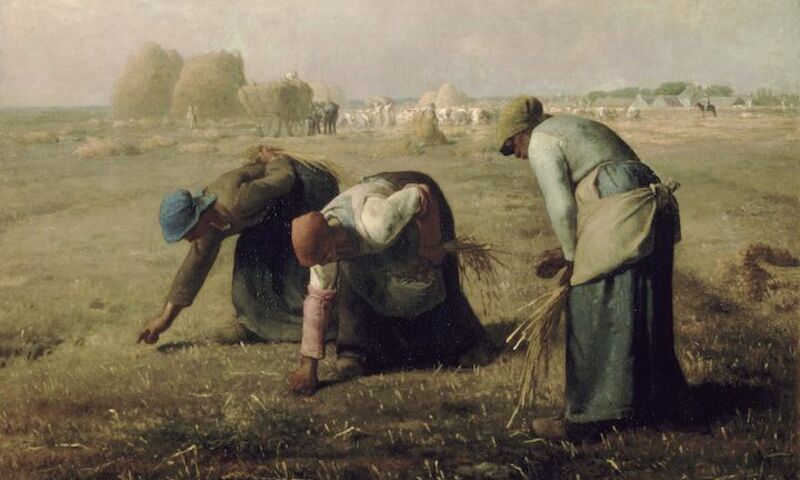In a previous post, Did the Apostle Paul Use Profanity?, I debunked the claim that σκύβαλα (skubala, rubbish or waste), a word used by Paul in Phil. 3:8, was a Greek swear word. I showed that there are no examples in ancient literature of it being used as a swear word, that is, as a vulgar interjection, insult or invective. In fact, it was used as a normal, polite word to refer to a variety of types of waste, including dung, food waste and trash. It was even used in medical and religious texts with no sign that it was offensive.
What I add in this post is more evidence about the use of this word from the papyri. The papyri are useful precisely because most are non-literary and preserve more everyday use of language. They are bits of paperwork from the ancient world that only survived accidentally — personal letters, receipts, accounts, formal complaints, school exercises, even recipes. I did a search in a papyri database (papyri.info) for every use of σκύβαλα, and found more of the same evidence: σκύβαλα never once functioned as a swear word or a rude word in any of the papyri.
Here is a summary of how the word σκύβαλα was used in the papyri. You’ll notice some differences from how it is used in literary sources; this is because the papyri preserve more everyday uses of the word, especially in business accounts.
σκύβαλα does not ever clearly refer to dung in any of the papyri (but it does in some literary sources; see my previous blog post on this topic).
- σκύβαλα was nearly always used to refer to the waste that falls from harvesting, threshing or sifting various crops. This waste, if still usable, was often recovered and sold at a lower price, and so was listed in financial reports. If it was not usable, it was listed as a financial loss. Some examples:
Gemellus, a businessman, asks his son to deal with an accidental purchase of rotten hay that was a complete loss (“destroyed as waste,” σκύβαλον). In the same letter, when he mentions getting manure for fertilizer, he calls it κόπρα (dung), not σκύβαλα.
A Macedonian land account lists the value of hay sold, including a separate line for “the gleanings (σκυβάλων) sold at the threshing floor.”
Petheus, a farmer who had the rights to cultivate some public lands, made a formal complaint to the local military commander that some men let their flocks in and allowed them to graze on the gleanings (σ̣κ̣υβάλου) of his vegetable-seed crop.
In a list of farm employees and their pay, one job listed is gathering the σκύβαλα (gleanings) of straw, presumably after the harvesters finished.
Petearmotis the sifter wrote a letter asking to be paid, saying that he needed money to hire people to wash the waste (σκύβαλον) flax and sesame seed.
Pelagios, a small town mayor, reported to a regional administrator that a fire “broke out in the hay gleanings (σκυβάλοις χόρτου) and undergrowth on my farm.”
Σκύβαλος (Skubalos, the masculine form of the neuter word σκύβαλα) was the proper name of at least a dozen men. It shows up as the name of a pawnshop customer, a cloth dyer, a guard, the market overseer (agoranomos, an elected official) of Bubastis, a property owner, a ship owner, two trumpeters, and others listed in letters, accounts and tax records. I have not found any rationale for giving this name, so it is hard to know how positively or negatively it was perceived. One can imagine it having a positive sense, like “gleanings,” or a more negative sense, like “rejected” or “unwanted.”
All this just adds to the pretty overwhelming evidence that σκύβαλa never functioned as a swear word. Its use in financial accounts to refer to crop waste, and its use as a name for fairly prominent people, means that it was not even considered particularly rude.
In fact, the use of σκύβαλα as an item in financial reports may better explain what Paul means in Phil. 3:7-8. Aurelius, a second-century Egyptian farmer (among others), described his crop waste at his threshing floor as ζημία, a financial loss. Paul uses both ζημία and σκύβαλα in a financial metaphor to describe things that he counts as loss. Paul previously counted his past righteousness as κέρδος (profit or gain), but now he counts it as ζημία (loss). In fact, through Christ, he counts all things as loss (ζημιόω) and even as σκύβαλα (rubbish, complete waste), so that he may gain Christ as his profit (κερδαίνω).
 ∫⁄›Æ ”∆µ
∫⁄›Æ ”∆µ

.jpg)


